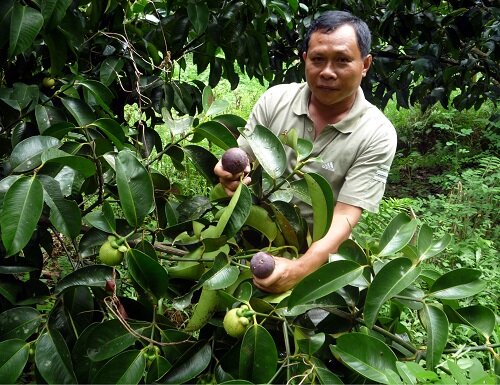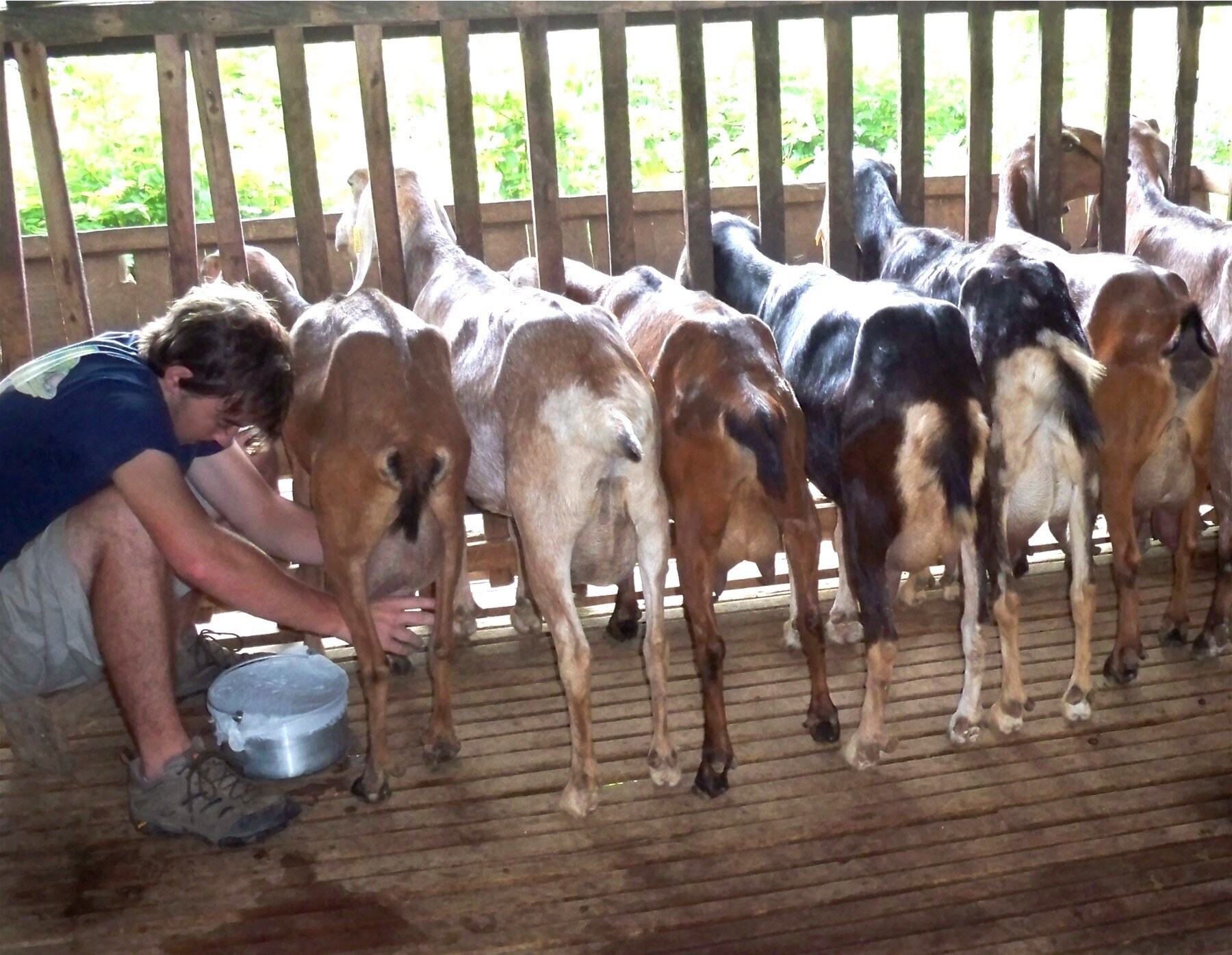Fruit growing is farm work that can be shared with visitors. Courtesy H Tacio.
Foreigners usually picture the Philippines as a place of dreamy golden beaches, shimmering azure waters, blue skies and gently swaying palms. But there is a new wave in tourism across the country – especially for those interested in sustainability. Farm tourism is the new attraction. By Henrylito D. Tacio.
Davao, September 2020. In the Philippines, the Republic Act No. 10816, otherwise known as the Farm Tourism Development Act, defines farm tourism as “the practice of attracting visitors and tourists to farm areas for production, educational and recreational purposes.” As a reason to visit, it is becoming increasingly popular in the Philippines.
Any agriculture or fishery-based activity that brings people to be educated or trained on farming and related activities, or just provides a venue for outdoor recreation and family outings cane be called farm tourism. “It ranges from very (sophisticated) tourist farms to very simple … farms,” said Senator Cynthia Villar, author of Act No. 10816. “They are the same thing; it’s about being creative,”
Indeed, the range is wide. Name it and the Philippines has it, says Dr. Maria Celeste H. Cadiz, an expert on farm tourism from the Laguna-based Southeast Asian Regional Center for Graduate Study and Research in Agriculture (SEARCA).
Author of the Farm Tourism Act, Senator Cynthia Villar. Courtesy C.Villar.
“There are several benefits to farm tourism,” says Dr. Cadiz. “It provides additional income to the community; it promotes local products and culture … but most importantly, environmental problems like cutting of trees, monoculture, and the use of chemicals, among others, are addressed and talked about.”
Like other enterprises, farm tourism has its challenges, particularly from the point of view of the operator. These include difficulty in finding sufficient labour, whether to go organic or conventional, what kind of physical infrastructure, availability of internet, garbage facilities, good roads, and climate change.
But despite these, the Philippines is now among top agri-tourism destinations in the world, according to local hotel marketing expert Rose H. Libongco.
“Farm tourism sites have boosted Philippines’ tourism potential and the country is now a top agri-tourism destination,” she said. Foreign visitor arrivals in the sector are growing by more than 10%, according to a recent press statement, with the bulk of foreign tourists coming from Korea and Japan, 22.2% and 8.68%, respectively, with tourists from Australia, Canada, Taiwan, and the UK all making up a significant added percentage of farm tourists.
Libongco noted that the Philippines is rich in natural resources and biodiversity, with a strong farming heritage reflected in folk songs. As well, its innate hospitality and openness to visitors all make the sector attractive to visitors. As an example, La Union region – known as the country’s surfing capital - also includes grape farms in Bauang and a swag of family farms. Tourism reportedly provided jobs to 100 locals and 50 household members with numbers growing to 18,000 visitors in 2017, growing from 7,000 in 2016.
Farm tourists get to join in with real farming activities such as milking goats. Courtesy H. Tacio.
In Laguna, the Villa Socorro Farm is an agri-eco village that adopts best green business practices and is a participant in the Global Green Growth Institute. It practices rain water harvesting, and grows native saba bananas. People who visit can check out its plant-to-pack site and take home farm products: corn pops (wasabi shoyu), banana crisps in caramelized sugar, “Sabanana” cider vinegar, “atsarampalaya” pickled bitter melon, and Ilocos bagnet chicharron, all produced on site.
And in Toril, the nearby Eden Nature Park and Resort – a once-barren piece of land - now provides a relaxing alternative to Davao city, offering cool weather and unpolluted air. There, tomatoes, cucumbers, and spices are grown organically; several varieties of hydroponically-grown lettuce and more are grown using the state-of-the-art technology. These and more are served fresh at the site’s Vista Restaurant to visitors from around the world – and the farm tourism movement gathers more pace.
“The Philippines is an agricultural country, with two-thirds of its population involved directly and indirectly in agriculture,” said Senator Villar, emphasising also the important contribution of the sector in national growth and development, and in bringing improved opportunities to an underdeveloped part of the community.
“(Another) reason why we passed (the Act) was because we wanted to add to the income of the farmers; they are among the poorest in the country.”
This story was awarded Best Agri Tourism Reporting at the 44th Philippine Agricultural Journalists Binhi Awards event.


